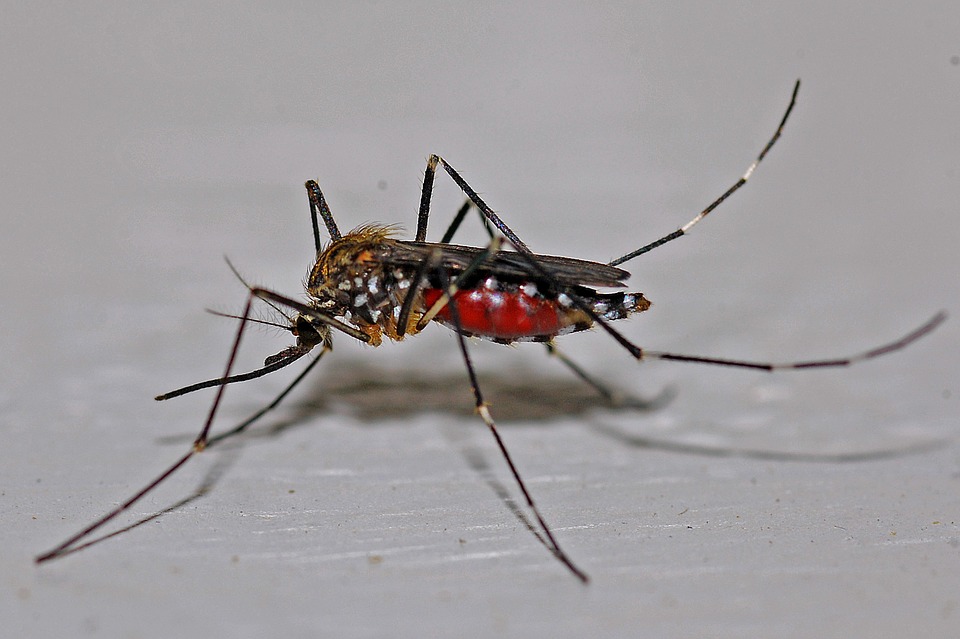A new study in the journal Nature Communications compares changes in gene expression in immune cells in humans before, during, and after infection with a partially weakened Dengue virus (rDEN2Δ30, ClinicalTrials.gov NCT02021968). Live, weakened or “attenuated” viruses are the basis for the most effective and durable vaccines against many viral diseases.
The study finds that while the expression of some inflammatory genes, such as genes for type I interferon and viral restriction pathways, increases when the virus is present in blood and returns to baseline upon virus clearance, the expression of other genes that code for immune regulatory factors, in immune cells such as antibody-producing cells, remain at elevated levels even when the virus is no longer in the patient’s bloodstream.
The authors found strong correlations between the activation of specific immune genes and the ability of participants’ immune systems to turn on early cellular defense mechanisms and make protective antibodies against dengue virus.
Using pre-infection baseline gene expression profiles, the researchers predict rDEN2Δ30-induced immune responses and the development of rash. The study published in the article titled “Immunotranscriptomic profiling the acute and clearance phases of a human challenge dengue virus serotype 2 infection model” demonstrates a distinct immunological profile for mild rDEN2Δ30 infection and indicates new potential biomarkers for primary Dengue virus infection.
“We found a universal set of 12 blood gene biomarkers for dengue infection that predict development of clinical symptoms and an additional set of 49 genes that predict protective immune responses. These genes can be monitored to tell if an infected person is likely to have an uncomplicated dengue infection and whether they are likely to develop virus-neutralizing antibodies, which is useful for vaccine development,” says Sean Diehl, PhD, associate professor of Microbiology and Molecular Genetics at the University of Vermont (UVM), senior investigator on the study.

The Aedes mosquito-borne dengue virus—saw a record number of over 400 million cases worldwide in 2019. Climate change has expanded the viruses’ geographic distribution far beyond tropical areas like Southeast Asia and Latin America to the southern U.S. and Europe.
Dengue disease occurs in 96 million people per year with symptoms ranging from a fever with rash, joint pain, myalgia, fatigue, and pain in the eyes to hemorrhagic fever and shock. Severe dengue is a potentially fatal complication, with death occurring due to fluid accumulation, respiratory distress, severe bleeding, or organ impairment.
The disease is spread by female Aedes mosquitoes that carry any of the four dengue virus serotypes (DENV1-4). Vaccine development for Dengue has been challenging due to the need to protect equally against all four DENV strains. Only one vaccine, Dengvaxia, has been approved for a subset of at-risk individuals in endemic areas.
Primary infection with a single serotype can cause disease, but most disease is caused by secondary infection with a different serotype of DENV. The reason behind this may be a reduced ratio of protective neutralizing antibodies versus non-neutralizing cross-reactive antibodies with the latter promoting antibody-dependent increase of viral replication or additional immune mechanisms induced by the primary DENV infection that increase the risk of secondary disease.
Previous research published by Diehl and MMG Chair Beth Kirkpatrick, MD, director of the UVM Vaccine Testing Center, has shown how a dengue vaccine being developed together with Johns Hopkins and the National Institutes of Health activates an immune response that protects against challenge with this dengue virus.
Diehl and his team his co-developing the next-generation dengue vaccine. To better understand how live attenuated dengue viruses turn on the immune system, Diehl and colleague John Hanley, PhD, a UVM research specialist, in collaboration with Kirkpatrick and the Vaccine Testing Center, investigated which genes are activated or repressed in the immune cells from subjects exposed to a well-characterized and safe live attenuated dengue virus, rDEN2Δ30.
Hanley developed a new statistical approach to integrate the genomics data with the extensive clinical data collected during the careful monitoring of dengue virus-exposed study participants.
“These data offer new potential biomarkers for characterizing dengue virus infection and novel pathways that could be leveraged to combat viral replication,” says Diehl. “Our results also gave us some clues about how we might be able to boost protective immune responses, which is the goal of developing effective vaccines.”
Diehl adds that for some of the genes identified in this study, little is known about their role in the response against dengue virus.
“This is very exciting, because it could lead to new ways to fight dengue, so we are now investigating these in the lab” says Diehl.
“A durable protective immune response is the goal of a good vaccine,” says Kirkpatrick.
“The next steps are to validate these pathways in patients exposed to other dengue viruses and in patients receiving a dengue vaccine,” says Diehl. The current data focuses solely on serotype 2 was.
Diehl and Kirkpatrick are working to determine how long protective immunity lasts after receiving a dengue vaccine. Toward this end they are identifying volunteers who received the NIH-developed dengue vaccine up to 11 years ago to obtain a current blood sample for further testing.


